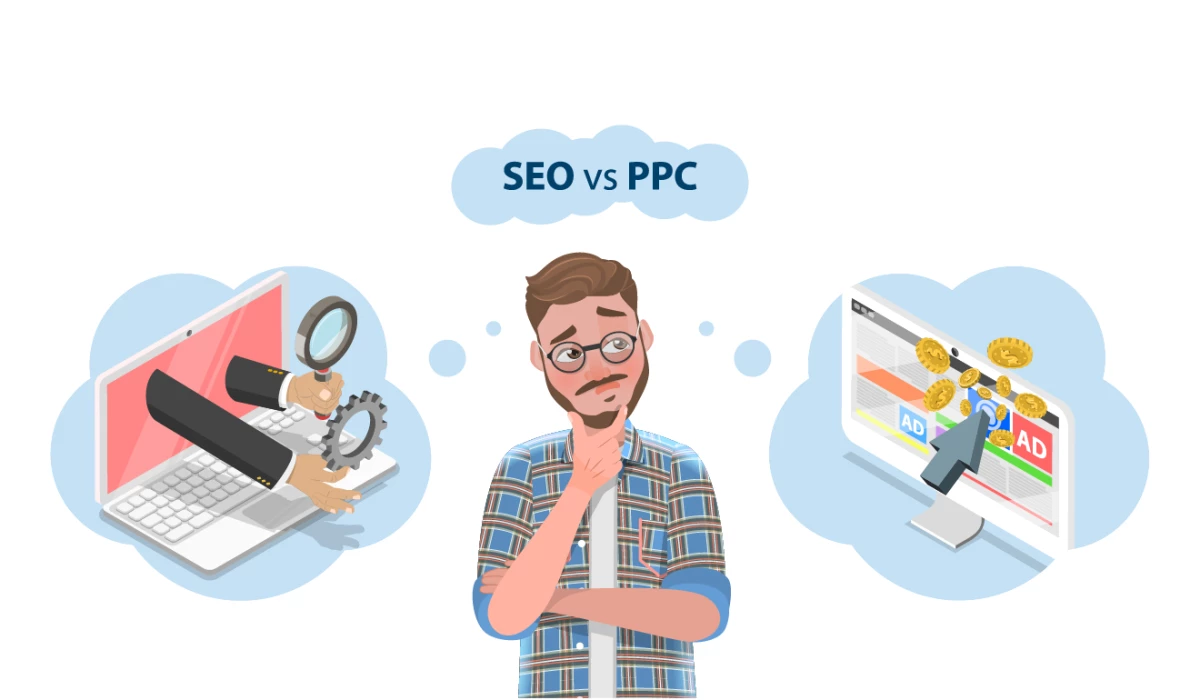
While both are effective, understanding their differences and when to use each can significantly impact the success of your business's marketing efforts. Let's explore the pros and cons of SEO and PPC to determine which might be the perfect fit for your business.
What is SEO?
Search Engine Optimization (SEO) involves optimizing your website and content to rank organically on search engine results pages (SERPs). SEO focuses on improving your website's visibility through techniques like:
Keyword optimization: Incorporating relevant keywords into your website content.
Content creation: Regularly publishing high-quality content that provides value to your audience.
Link building: Acquiring backlinks from reputable websites to boost your authority.
On-page optimization: Optimizing elements like title tags, meta descriptions, and headings.
Pros of SEO:
Cost-effective: Clicks on your organic listings in the internet search engines are free, making it a cost-effective long-term strategy.
Trust and credibility: Higher organic rankings instil trust and credibility in your brand
Long-term results: Once established, good rankings can be sustained over time with maintenance.
Increases brand visibility: Helps in building brand awareness and recognition.
Cons of SEO:
Time-consuming: It can take months to see significant results due to competition and search engine algorithm updates.
Complexity: SEO requires technical knowledge and ongoing effort to stay ahead of competitors.
Uncertain outcomes: Search engine algorithms are constantly changing, affecting rankings unpredictably.
What is PPC?
Pay-per-click (PPC) advertising, on the other hand, allows you to bid for ad placement in search engine-sponsored links when someone searches for keywords related to your business. Key elements of PPC include:
Keyword research: Identifying relevant keywords for your target audience.
Ad creation: Writing compelling ad copy that encourages clicks.
Bid management: Setting bids for your chosen keywords.
Landing page optimization: Ensuring your landing pages are optimized for conversions.
Pros of PPC:
Immediate results: PPC ads can drive traffic and conversions quickly once campaigns are set up.
Targeted advertising: Ability to target specific demographics, locations, and devices.
Control over budget: You have full control over how much you spend daily, weekly, or monthly.
Measurable results: PPC platforms provide detailed analytics and ROI tracking.
Cons of PPC:
Costly: Costs can add up quickly, especially for competitive keywords.
Requires ongoing management: Regular monitoring and optimization are necessary to maintain performance.
Dependence on budget: Once you stop spending on PPC, traffic stops coming in.
Ad fatigue: Users may ignore or become less responsive to ads over time.
SEO vs. PPC: Which Is Right for Your Business?
Consider SEO If:
You're looking for long-term, sustainable results.
You have the time to invest in building organic rankings.
You want to enhance your website's credibility and authority in your industry.
You have a limited budget and want to maximize ROI over time.
Consider PPC If:
You need immediate results and traffic.
You have a budget for paid advertising.
You want to target specific audiences and demographics.
You're launching a new product or service and need quick visibility.
Conclusion
The decision between SEO and PPC depends on your business goals, budget, and timeline. Many effective digital marketing efforts employ both strategies simultaneously to maximize their digital marketing efforts.
If you're unsure how to deploy these strategies for your business, the Rocket Marketing team is here to assist. We can help you develop a customized digital marketing plan that aligns with your goals and ensures your business achieves maximum visibility and success in today's competitive digital landscape.
